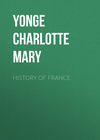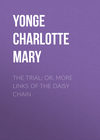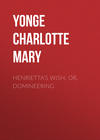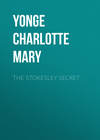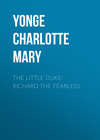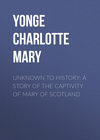Czytaj książkę: «Abbeychurch; Or, Self-Control and Self-Conceit», strona 9
'But indeed I wrote a good many words about it,' said Anne; 'have you the letter, Rupert?'
'Have I the letter?' cried Rupert. 'Young ladies, did you ever hear of such overweening presumption? Here is a damsel who expects her scraps of angular writing to be preserved with as much care as the Golden Bulls of the Pope!'
'That is to say, you burnt it without reading it,' said Anne.
'The former part of your supposition is true, sweet sister mine,' replied Rupert: 'not knowing what spells it might contain, seeing that Miss Merton's caligraphy is more like the cabalistic characters of a sorceress than the Italian-hand of a gentle demoiselle, I exorcised it—I committed it to the devouring element!'
'Without turning over the second page of the second piece of note-paper, I suppose?' said Anne.
'How was I ever to suppose that anyone would write a letter for the purpose of giving me an important piece of information,' said Rupert, 'and then put the pith of it in a place where no one would ever dream of looking? No, Lady Elizabeth, if by my absence your feast has lost its brightest ornament, its wittiest and wisest cavalier, it is this sister of mine whom you must accuse!'
It was really not a little provoking to be blamed in this manner for Rupert's own carelessness; but Anne was used to her brother's ways, and could bear them with good humour. Elizabeth, however, attacked him. 'Why, Rupert, one would suppose you had never heard where a woman's mind is to be found! These are most futile excuses.'
'I will only attempt one other,' said the truant—'the utter worthlessness of young ladies' letters, which is such as not to encourage their friends to make any very strict researches into them.'
'Worse and worse!' said Elizabeth; 'you have certainly behaved most cavalierly, that must be confessed! We are only considering what punishment you deserve.'
'I deserve the punishment I have had, Lizzie,' said Rupert; 'I have missed the Consecration, and three days of this fair company!'
'Besides that, you will be held up ever after as a warning to Horace and Edward,' said Elizabeth.
'I saw that first-mentioned pupil of yours on Sunday,' said Rupert.
'Oh! how pleased Mamma will be!' cried Elizabeth; 'then you went to Sandleford?'
'Yes; finding myself too late for the coach on Saturday afternoon, by which I had intended to go to Ely,' said Rupert, 'I made up my mind to spend Sunday at Sandleford, and take a cursory view of the young gentleman, and of my old haunts.'
'Thank you,' said Elizabeth, her eyes beaming with pleasure; 'I am sure that was very kind of you. And how did he look, poor little fellow, and what did he say, and was not he delighted to see you?'
'I shall leave you to judge of that,' said Rupert, 'and say that he looked very happy and flourishing, with face and shirt-collar all over ink on Saturday afternoon; and he said more than I can remember on Sunday evening.'
'And what does Dr. Freeman say of him?' said Elizabeth.
'Dr. Freeman assured me—what do you think, young ladies?—that Master Horatio Woodbourne is by far the most promising youth who has entered his celebrated academy since—of course you know whom I mean, and will spare my blushes!'
'Unluckily,' said Anne, 'the evident fabrication of the latter part of that speech destroys our belief in the beginning of it.'
'No, no,' said Elizabeth, 'it is only the most promising, not the most performing. No one can doubt of Rupert's promises!'
'Rupert, you always do talk such nonsense,' said Katherine.
'Many thanks for the compliment, Lady Kate,' said Rupert, with a bow; 'considering how my intelligence is received, I think I shall spare it in future. I have a letter and parcel from Master Horatio in my portmanteau, and they may speak for themselves, if I have not lost my keys, as I said before.'
'O Rupert!' cried Anne, 'how could you lose them again, after all the pains Mamma took to save them?'
'Indeed, Anne, I did behave better than usual,' said Rupert; 'I kept them safe till yesterday, I assure you. I wish you would come and give me the carriage keys; perhaps some of them may unlock the portmanteau.'
Anne did not think they would; she said they had all been tried twice before; but Rupert would not be satisfied till the experiment had been repeated once more; and long after all the other girls were gone to bed, he kept his sister up, looking out some things which had been brought from Merton Hall for him, while he sat by recounting all his adventures in Scotland. Anne was much delighted to listen, and very glad to have her brother with her again; but perhaps, if he had not been quite so much engrossed by his own affairs, he would have seen that she looked very tired, and have remembered that it was much later than her usual bed-time.
While Katherine and Helen were undressing, the former began:
'Helen, I wish you had gone, it was such fun!'
'Was it?' said Helen. 'I thought Lizzie did not seem much gratified.'
'Lizzie? Oh no,' said Katherine; 'she only hung her head and looked vexed, though there were such a number of people, all so civil and bowing—Mr. Wilkins, and the Greens, and Mr. Higgins.'
'Did Mr. Higgins bow to you and Lizzie?' exclaimed Helen.
'Yes, that he did,' said Katherine triumphantly; 'and a very polite bow he made, I assure you, Helen. I was quite glad to see him; I hope he is coming round.'
'How did Lizzie like it?' asked Helen.
'Oh! she is so odd, you know,' said Katherine; 'she seemed really quite angry; I jogged her once or twice to make her look up, but she shook me off quite crossly; I thought she would have been pleased.'
'I should think few things would vex her much more,' said Helen.
'Well,' said Katherine, 'Willie once told me that some people think Lizzie very proud and disdainful, and I really begin to believe so too.'
'Oh no, Kate,' said Helen; 'I am sure she is not proud, it is only—'
'Mercy, Helen!' here interrupted Kate, 'what are you doing to your hair?'
'Curling it,' replied Helen, in her composed manner.
'Why in the world?' said Katherine; 'I thought you liked your plaits better.'
'Lizzie does not,' said Helen.
'Well,' said Katherine, 'I am sure I should never dream of doing such a thing, only because Lizzie chooses to make a fuss.'
'Perhaps not,' said Helen.
There was a silence. Presently Helen said, 'I suppose Mr. Higgins's next Sunday's paper will mention that the Mechanics' Institute was honoured by the presence of the Miss Woodbournes!'
'Dear me, do you think so?' said Katherine, who could not guess from her sister's manner what opinion she intended to express.
'I think it very probable indeed,' said Helen; 'such a sanction to the education-without-religion system is not to be neglected.'
'System!' said Katherine, looking bewildered; 'how are we to sanction anything?'
'Our station here, as the daughters of the clergyman, gives us some weight,' said Helen; 'besides that, what each person does, however trifling, is of importance to others.'
This was not very clearly expressed, and Katherine did not trouble herself to understand it. She only said, 'Well, I hope we have not got into a scrape; however, you know it was Lizzie's doing, not mine.'
'I thought you went,' said Helen.
'Yes,' said Katherine; 'but that was only because Lizzie said it was not wrong. She is the eldest, and you know she is accountable.'
'I should think that poor consolation,' said Helen.
'Well,' said Katherine sleepily, 'good-night. Those horrid gas-lights have made my head ache. I cannot talk any more.'
CHAPTER IX
Although she had sat up so much later than usual the night before, Anne was dressed on Saturday morning in time to go to her mother's room for a little while before breakfast.
'Mamma,' said she, after they had spoken of Rupert's arrival, 'where do you think we went yesterday evening?'
'Where, my dear?'
'To hear a lecture at the Mechanics' Institute, Mamma.'
'I should not have thought that your uncle would have approved of his daughters going to such a place,' said Lady Merton.
'Do you think we ought not to have gone, Mamma?' said Anne.
'I do not know the circumstances, my dear,' said Lady Merton; 'the Mechanics' Institute may perhaps be under your uncle's management, and in that case—'
'Oh no,' said Anne. 'I do not think it is—at least, I do not think Uncle Woodbourne would have liked the lecture we heard much better than Lizzie and I did; and after it was too late, I found that Helen had declared it was very wrong of us to go. She would not go; and I found that when I was out of the room, she and Lizzie had had a great debate about it.'
Anne then gave a full account of all that had occurred, and ended with, 'Now, Mamma, do you think we could have helped going on after we once came to Mrs. Turner's, and found what kind of a thing it was likely to be?'
'People certainly cannot stop themselves easily when they have taken the first wrong step,' said Lady Merton.
Anne sighed. 'Then I am afraid we have done very wrong,' said she.
'For yourself, Anne,' said her mother, 'I do not think you are much to blame, since I cannot see how you were to know that your cousins were going without their father's consent.'
'I am glad you think so, Mamma,' said Anne; 'but I cannot be quite happy about it, for I might certainly have supposed that there was some reason against our going, when Helen and the youngest Miss Hazleby turned back and went home.'
'You heard none of Helen's remonstrances?' said Lady Merton.
'No, Mamma; I was foolish enough to be satisfied with Lizzie's saying that she had been talking nonsense,' said Anne; 'besides, I could see that Helen was out of temper, and I thought that might account for her objecting.'
'These are very good reasons, Anne,' said Lady Merton.
'Indeed they are not, Mamma,' said Anne; 'I am afraid the real cause was, that my head was so full of the pleasure I expected in going to the lecture, that I did not choose to think that we ought not to go. I am afraid I am growing thoughtless, as you said I should here.'
'No, no, Anne,' said Lady Merton, smiling, 'I did not say you would, I only said you must guard against doing so; and as far as I have seen, you have shewn more self-command than when you and Lizzie were last together.'
'Ah! but when you are not looking on, Mamma,' said Anne; 'that is the dangerous time, especially now Rupert is come; he and Lizzie will make us laugh dreadfully.'
'I hope they will,' said Lady Merton, 'provided it is without flippancy or unkindness.'
'But, Mamma,' said Anne, presently after, 'what do you think about Lizzie? was she in the wrong?'
'I cannot tell without knowing more about it,' said Lady Merton; 'do you know what she thinks herself?'
'No, Mamma,' said Anne; 'she was asleep before I went to bed last night, and up before I awoke this morning. But I do firmly believe, that if Lizzie had had the slightest idea that she was doing wrong in going there, she would as soon have thought of flying as of doing so.'
It was now breakfast-time; and Rupert came up to summon his mother and sister, and to inform them that his portmanteau had just been broken open for the seventh time since it had been in his possession. He said this with some satisfaction, for he was somewhat vain of his carelessness, for of what cannot people be vain?
During breakfast, it was arranged that the three elder ladies should go in the Mertons' carriage to Baysmouth, a large town, which was about ten miles distant from Abbeychurch, and take Winifred and Edward with them; Dora was to accompany the other young people in a long walk, to a farm-house, which report said had been a baronial castle in the days of King Stephen, and from exploring the antiquities of which some of them expected great things, especially as it was known by the mysterious name of Whistlefar. Mr. Woodbourne and Sir Edward expected to be engaged all day in the final settlement of accounts with the architect of the church.
As soon as the two parties of pleasure had been arranged, Elizabeth left the breakfast-table to tell the children of the treat in store for them, and to write a little note to Horace, to accompany Dora's letter, which had been finished that morning before breakfast.
Just after she had quitted the room, Sir Edward asked what the smart-looking building, at the corner of Aurelia Place, was.
'You mean the Mechanics' Institute,' said Mr. Woodbourne.
'Never was new town without one,' said Rupert.
'Is this one well conducted?' inquired Lady Merton.
'Not much worse than such things usually are,' replied Mr. Woodbourne; 'two or three Socialist lectures were given there, but they were stopped before they had time to do much harm.'
'Were you obliged to interfere?' said Sir Edward.
'Yes,' said Mr. Woodbourne; 'I went to some of the managing committee—Mr. Green and old Mr. Turner—and after some rather strong representations on my part, they found means to put a stop to them. Higgins, their chief promoter, made several violent attacks upon me in his newspaper for my illiberality and bigotry; and poor Mr. Turner was so much distressed, that he came to entreat me to go myself, or at least to allow my girls to go, to some lectures, which he promised should be perfectly harmless. I told him that I disapproved of Mechanics' Institutes in general, and especially of the way in which this one is conducted, and that I had resolved long before that none of my family should ever set foot in it. Here the matter ended; and I have heard no more of it, except that Mrs. Turner is constantly tormenting my wife with offers to take the girls to some peculiarly interesting lecture.'
If Elizabeth had been present, she would certainly have immediately confessed her indiscretion of the evening before; but she was not there, and Katherine, who was on the point of speaking, was checked by an imploring glance from Harriet. The conversation was changed, and nothing more was said on the subject. As soon as they could leave the breakfast-table, all the young ladies instantly flew to the school-room, where Elizabeth was sitting alone, writing.
'Lizzie, Lizzie!' exclaimed three voices at once, 'do you know what you have done?'
'Is it anything very fatal?' said Elizabeth, looking quite composed.
'A fine scrape you have got into!' cried Katherine.
'A pretty kettle of fish you have brought us into!' exclaimed Harriet.
'But what is the matter, good ladies?' said Elizabeth; 'why do you look so like the form that drew Priam's curtains at the dead of night?'
'Come, Lizzie,' said Katherine pettishly, 'do not be so provoking with Priam and all that stuff, but tell us what is to be done about that horrid Institute.'
'Oh! that is it, is it?' said Elizabeth; 'so I suppose Fido was stolen there, and you are afraid to tell!'
'I am afraid he was,' said Katherine; 'but that is not the worst of it—I know nothing about him. But do you know what Papa says? Uncle Edward has been asking about the Institute; and, oh dear! oh dear! Papa said he could not bear Mechanics' Institutes, and had resolved quite firmly that none of his family should ever set foot in one!'
Elizabeth really looked quite appalled at this piece of intelligence; and Katherine continued, 'And Chartists, and Socialists, and horrible people, have been lecturing there! I remember now, that when you were at Merton Hall in the spring, there was a great uproar, and the Abbeychurch Reporter behaved very badly to Papa about it. A fine affair you have made of it, indeed, Lizzie!'
'And pray, Miss Kate,' said Elizabeth sharply, 'who was the person who first proposed this fine expedition? Really, I think, if everyone had their deserts, you would have no small share of blame! What could prevent you from telling me all this yesterday, when it seems you knew it all the time?'
'I forgot it,' said Katherine.
'Exactly like you,' continued her sister; 'and how could you listen to all Helen said, and not be put in mind of it? And how could you bring me back such a flaming description of Mrs. Turner's august puppy of a nephew? If we are in a kettle of fish, as Harriet says, you are at the bottom of it!'
'Well, Lizzie,' said Katherine, 'do not be so cross; you know Mamma says I have such a bad memory, I cannot help forgetting.'
And she began to cry, which softened Elizabeth's anger a little.
'I did not mean to throw all the blame upon you, Kate,' said she; 'I know I ought not to have trusted to you; besides that, I led you all into it, being the eldest. I only meant to shew you that you are not quite so immaculate as you seem to imagine. We have all done very wrong, and must take the consequences.'
Helen was leaving the room, when Harriet died out, 'O Helen, pray do not go and tell of us!'
'Helen has no such intention,' said Elizabeth; 'I am going to tell Papa myself as soon as he has done breakfast.'
'Oh! Lizzie, dearest Lizzie,' cried Harriet, 'I beg you will not; you do not know what Mamma would do to me!'
'Pray, Harriet,' said Elizabeth scornfully, 'do you think that I am going to conceal my own faults from my own father?'
'But, Lizzie, stop one moment,' said Harriet; 'you know it was you and Kate who took me; I did not know it was wrong to go; and now Fido is lost, Mamma will be certain to say it was by my going, and she will be dreadfully angry with me; and you would not wish me to be scolded for what was your fault!'
'Should not you wish me to tell, Anne,' said Elizabeth, turning her back upon Harriet.
'I told Mamma this morning,' said Anne.
'Told her!' exclaimed Harriet; 'and what did she say—?'
'She said she wondered that my cousins were allowed to go to such a place,' said Anne; 'and she seemed very sorry we had gone.'
'But was she angry with you?' persisted Harriet.
Anne hesitated; and Elizabeth replied, 'No, of course she could not be angry with Anne, when it was all my doing. She must be displeased enough with me, though.'
'But will she tell Mamma and Aunt Mildred?' said Harriet.
'I do not think she will,' answered Anne.
'No, because she trusts to me to tell,' said Elizabeth; 'so that you see I must, Harriet.'
'Must you?' said Harriet; 'I cannot see why; it will only get us all a scolding.'
'Which we richly deserve,' said Elizabeth.
'I am sure, if you like to be scolded,' said Harriet, 'you are very welcome; only do not make Mamma scold me too.'
'I am sure, if you like to be insincere and cowardly,' said Elizabeth, 'you shall not make me so too.'
'I do not want you to tell a fib,' said Harriet; 'I only want you to say nothing.'
'L'un vaut bien l'autre,' said Elizabeth.
'What?' said Harriet; 'do only wait till we are gone, if you are determined to tell—there's a dear girl.'
'Deceive Papa and Mamma for three whole days!' cried Elizabeth; 'I wonder you are not ashamed of yourself. Besides, Harriet, I do not see what you have to fear. It was Kate and I who did wrong; we knew better, and cast away Helen's good advice; we shut our eyes and went headlong into mischief, but you had no reason to suppose that you might not do as we did.'
'No,' said Harriet, 'I should not care if it was not for Fido.'
'But will my silence find Fido?' said Elizabeth.
'No,' said Harriet; 'but if Mamma knows we went there she will scold us for going, because she will be angry about Fido; and if she once thinks that it was I who lost him—oh, Lizzie, you do not know how angry she will be!'
'But, Harriet,' said Katherine, 'I thought you used to say that you could do anything with your Mamma, and that she never minded where you went.'
'Oh! that is when she is in good humour,' said Harriet; 'she is not often cross with me, but when she is, you may hear her from one end of the house to the other. Cannot you, Lucy? And now she will be dreadfully cross about Fido, and the other thing coming upon it, I do not know what she may say. O Lizzie, you will save me!'
'I will only tell of Kate and myself,' said Elizabeth; 'or I will ask Papa not to mention it to Mrs. Hazleby; though, Harriet, there are some people who prefer any suffering, just or unjust, to deceit.'
'Then you mean to tell directly,' said Katherine, in a piteous tone.
'Of course I do,' said Elizabeth; 'there is the dining-room door shut. Come with me, Kate.'
Katherine rather unwillingly followed her sister into the passage; but when there, fear making her ingenious, a sudden thought struck her. 'Lizzie,' whispered she, 'if you tell Papa that you and I went, Mrs. Hazleby will be sure to hear, and if she asks Harriet about it, perhaps she—you know—may tell a story about it.'
'Fine confidence you shew in your chosen friend!' said Elizabeth.
'Why, one must be civil; and Harriet is a sort of cousin,' said Katherine; 'but I am sure she is not half so much my friend as Willie.'
'Well, never mind defending your taste in friends,' said Elizabeth; 'for as I do think your scruple worth answering, I will tell you that I had thought of the same thing; but I do not choose to do evil that good may come, or that evil may not come. I shall tell Papa what an excellent opinion you have of Harriet, and leave him to do as he pleases.'
Elizabeth's hand was on the lock of the door of her father's study, when Katherine exclaimed, 'There is someone there—I hear voices!'
'Uncle Edward,' said Elizabeth. 'I do not mind his being there; we ought to beg his pardon for leading Anne astray.'
'Oh! but do not you see,' said Katherine, 'here are a hat and a roll of papers on the table! Mr. Roberts must be come.'
'Tiresome man!' cried Elizabeth; 'he will be there all day, and I shall not see Papa I do not know when. It really was a very convenient thing when the architects of the old German cathedrals used to take a desperate leap from the top of the tower as soon as it was finished. Well, I must find Mamma now.'
'Cannot you wait till the evening, when you may see Papa?' said Katherine, hoping to put off the evil day.
'I cannot have this upon my mind all day unconfessed,' said Elizabeth; 'besides, Harriet will pester me with entreaties as long as it is untold. Come, Kitty, do not be such a coward.'
'I am sure I do not want you not to tell,' said Katherine, looking rather miserable; 'only I am not in such a hurry about it as you are. You do not know where Mamma is.'
'No, but I will find her,' said Elizabeth.
The sisters set off on the chase; they looked into the drawing-room, the dining-room, Mrs. Woodbourne's room, without success; they ran up to the nursery, but she was not there; and they were going down again, when Katherine, seeing Elizabeth go towards the kitchen stairs, exclaimed, 'Well, I will go no further; it is so ridiculous, as if it was a matter of life and death! You may call if you want me.'
Katherine retreated into her own room, and Elizabeth ran down to the kitchen, where she found Mrs. Woodbourne ordering dinner.
Elizabeth stood by the fire, biting her lip and pinching her finger, and trembling all over with impatience, while Mrs. Woodbourne and the cook were busily consulting over some grouse which Rupert had brought from Scotland.
'Lizzie, my dear,' said Mrs. Woodbourne presently, 'would you just run to my room and fetch down the green receipt-book?'
Elizabeth obeyed: running was rather a relief to her, and she was down-stairs again in another instant.
'Why, Lizzie,' said Mrs. Woodbourne, with a smile, 'you must be wild to-day; you have brought me the account-book instead of—But, my dear child, what is the matter?' said she, perceiving that Elizabeth's face was scarlet, and her eyes full of tears.
'I will tell you presently,' whispered Elizabeth, breathlessly, 'when you have done.' She darted away again, and returned with the right book; but Mrs. Woodbourne was too much alarmed by her manner to spend another moment in giving directions to the cook, and instantly followed her to her own room. Elizabeth hastily shut the door, and sat down to recover her breath.
'My dear Lizzie, there is nothing amiss with any of the—' exclaimed Mrs. Woodbourne, almost gasping for breath.
'Oh no, Mamma,' said Elizabeth, a smile passing over her face in spite of her distress, 'it is not Winifred who is mad. It is I who have been more mad and foolish and self-willed than you would ever believe. Mamma, I have been with Mrs. Turner to the Mechanics' Institute.'
'My dear Lizzie, you do not mean it!' said Mrs. Woodbourne.
'Yes, Mamma, indeed it is so,' said Elizabeth mournfully; 'I did not know what had happened there certainly, but I would not listen to Helen's good advice, and so I have made Papa seem to consent to what he abhors; I have led Kate and Anne and Harriet all wrong. Oh! Mamma, is not it terrible?'
'Indeed, I wish I had told you what your Papa said to Mr. Turner,' said Mrs. Woodbourne; 'I am afraid your papa will be very much annoyed; but, my dear, do not distress yourself, you could not know that it was wrong.'
'Yes; but, Mamma,' said Elizabeth, 'I did know that it was wrong to go out without asking your leave. Simple obedience might have kept me straight. But now I will tell you all, and you shall judge what had best be done about the Hazlebys and Fido.'
Rather incoherently, and with many sobs, Elizabeth told the history of the preceding evening. Mrs. Woodbourne listened to her with the utmost kindness, and said all she could to soothe and console her, assuring her that Mr. Woodbourne could not be seriously displeased with her for having transgressed a command of which she was ignorant. Elizabeth was much relieved by having been able to talk over her conduct in this manner; and though she still felt that she had been very much to blame, and by no means sure that Mr. Woodbourne would pass over her fault so lightly, was greatly comforted by her mamma's kindness. She went away to bathe her swollen eyes, before she went down to the school-room to read the Psalms and Lessons with her sisters, as was their regular custom when there was no service at the church, before they began their morning's work; Mrs. Woodbourne undertaking to call the children down in a few minutes, and saying that she would speak to Katherine in the course of the day. She willingly promised to say nothing to Mrs. Hazleby, and only wished she was quite sure that there were no symptoms of madness about Fido.
'What a strange girl Lizzie is!' cried Harriet, just as Elizabeth departed on her search for her father or Mrs. Woodbourne.
'But, Harriet,' said Lucy, drawing her aside to the window, 'what difference is her saying nothing to make? Mamma will ask how Fido was lost.'
'I am sure, Lucy, that was more your fault than mine,' said Harriet; 'I could not be watching him all the time we were at that place.'
'Then why did you take him there?' said Helen.
'Because Lucy chose to run away without ever thinking what I was to do,' said Harriet.
'But when you were leading him, and it must have been you who let go his string,' said Helen; 'I cannot see how you can accuse Lucy of having been the means of losing him, when she was safe at home.'
Harriet was saved from the necessity of finding an answer, by hearing her mother calling her in the passage, and she hastened to obey the summons.
'Do you know where Fido is?' was Mrs. Hazleby's question.
'No,' said Harriet, finding she had only escaped one dilemma to fall into another. She avoided any further questions, however, by hastening past her mother and running up-stairs.
'Lucy, Lucy!' then called Mrs. Hazleby; and as Lucy came out of the school-room, she repeated the inquiry.
'I do not know, Mamma,' answered Lucy in a low voice, but standing quite still.
'Go and ask for him in the kitchen then,' said Mrs. Hazleby.
'I am afraid it would be of no use. Ma'am,' said Lucy, firmly, but not daring to raise her eyes; 'we missed him when we came in from walking, yesterday evening.'
'Yesterday evening!' cried Mrs. Hazleby; 'and did you never speak of it? I never knew anyone so careless as you are, in all my life. It is of no use to leave anything in your charge, you care for—'
Here Lucy leant back and shut the door behind her, so that Anne and Helen could distinguish nothing but the sound of Mrs. Hazleby's loud angry voice raised to its highest pitch.
'Poor Lucy!' sighed Helen.
'Dreadful!' said Anne.
'And how can anyone say that Lucy is not one of the noblest, most self-devoted creatures upon earth?' exclaimed Helen, with tears in her eyes; 'there she is, bearing all that terrible scolding, rather than say it was Harriet's fault, as everyone knows it was. I am sure no one is like Lucy. And this is going on continually about something or other.'
'How can she exist?' said Anne.
'With her acute feelings and painful timidity,' said Helen, 'it is worse for her than it would be for anyone else, yet how gently and simply she bears it all! and old Mrs. Hazleby says that she is often ill after these scoldings, and she would have taken her away to live with her, as the Major proposed, after Miss Dorothea Hazleby died, but that she thought it would be taking away all the comfort of her father's life. Oh! Anne,' cried Helen, walking up and down the room as Mrs. Hazleby's voice became louder and louder, 'I cannot bear it; what shall I do? Oh! if it was but right, if it would not make it worse for Lucy, I could, I would go out and tell Mrs. Hazleby what everybody thinks of her.'
'I do not wonder that Miss Hazleby was ready to do almost anything to avoid such a scene,' said Anne.
'Mean selfish creature!' said Helen; 'she ran away on purpose that Lucy might stay and bear all this. Anne, I do believe that if martyrs are made, and crowns are gained, by daily sufferings and hourly self-denial, that such a crown will be dear dear Lucy's.'
Anne's answer was—
'And all the happy souls that rode
Transfigured through that fresh abode,
Had heretofore in humble trust,
Shone meekly 'mid their native dust,
The glow-worms of the earth!'
'Thank you, Anne,' said Helen, wiping away her tears; 'I will think of Lucy as the light, the glow-worm of her family. Thank you; the thought of her meek clear light in darkness need not be gloomy, as it has been.'
Anne had never thought of Helen as possessing so much enthusiasm, and was almost more inclined to wonder at her than at Lucy. While they had been talking, Mrs. Hazleby's voice had ceased, steps were now heard in the passage, and a letter was brought in and given to Helen. It was from Fanny Staunton, but she had only just time to glance it over, before the three children came in, followed by their mother and Elizabeth. Anne went to call her mother to join them in reading the Psalms and Lessons; and Winifred was sent to summon Katherine, who had purposely lingered up-stairs till all the rest were assembled.











